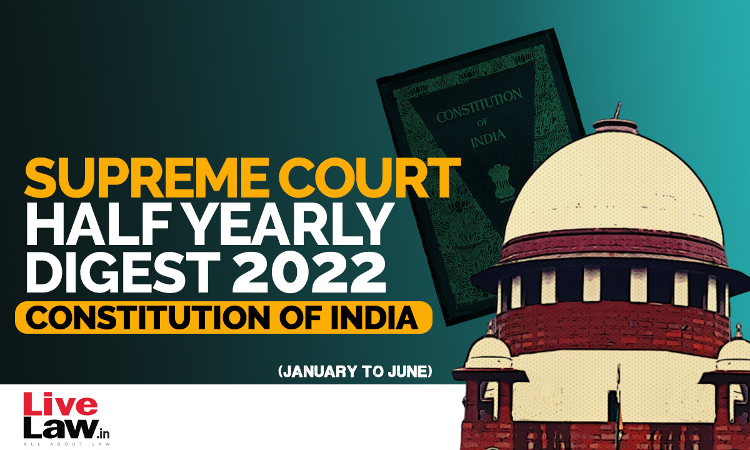Supreme Court Half Yearly Digest 2022 (Jan - Jun) Constitution of India
LIVELAW NEWS NETWORK
29 Aug 2022 8:04 PM IST

Next Story
29 Aug 2022 8:04 PM IST
Advocates - Role of the advocate as being an officer of the court - An advocate is a guardian of constitutional morality and justice equally with the Judge. He has an important duty as that of a Judge. He bears responsibility towards the society and is expected to act with utmost sincerity and commitment to the cause of justice. He has a duty to the court first. As an officer of...
